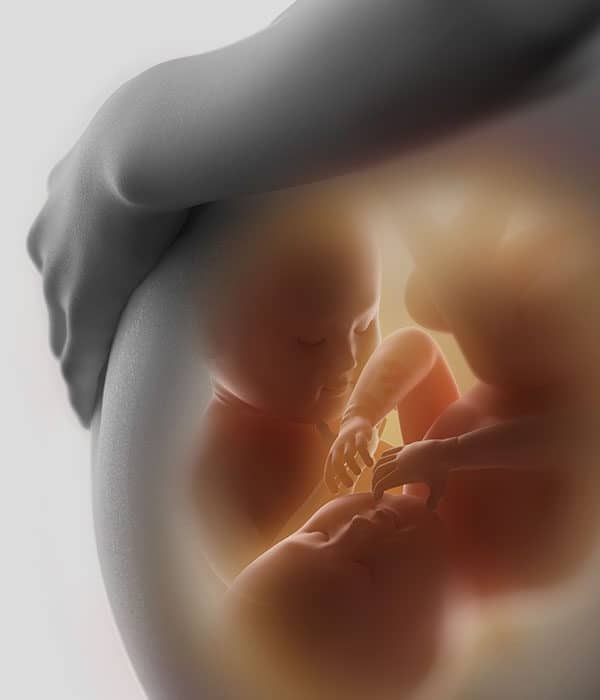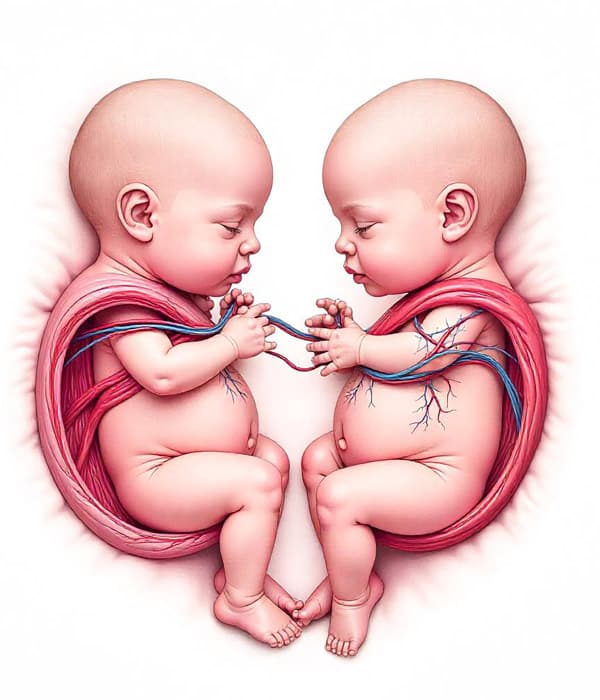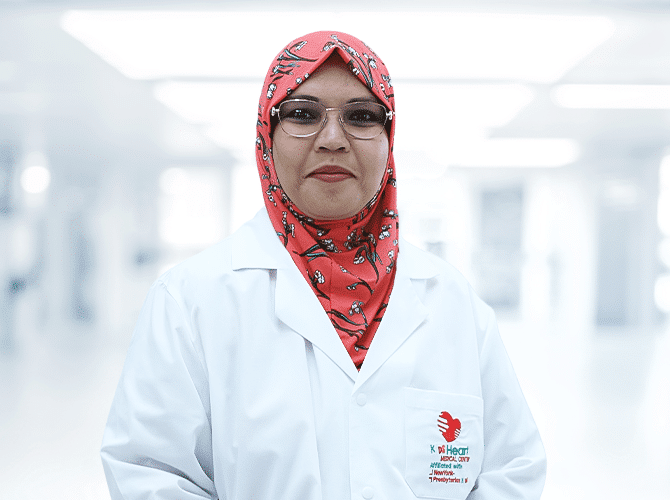Twin-to-Twin Transfusion Syndrome (TTTS) Screening
Twin-to-Twin Transfusion Syndrome (TTTS) Screening
Monitoring Twins Sharing a Placenta for Early Intervention

At KidsHeart Medical Center, we provide careful, continuous monitoring for twin pregnancies at risk of Twin-to-Twin Transfusion Syndrome (TTTS) — because early detection is the best path to timely, life-saving care.
TTTS is a serious condition that can occur when identical twins share a placenta.
Our specialists in Dubai and Abu Dhabi offer structured screening, advanced Doppler imaging, and expert referral when intervention is needed. Explore our gynecology services here.
When twins share more than just a womb, they need shared protection too.

What Is TTTS?
TTTS occurs in monochorionic diamniotic twin pregnancies, where twins share a single placenta. Uneven blood flow between the twins can result in:
- One twin (donor) receiving too little blood
- The other (recipient) receiving too much
This imbalance can lead to complications like:
- Growth restriction
- Amniotic fluid imbalances
- Heart strain
- Preterm labor or fetal distress
TTTS can progress quickly, which is why routine screening is essential.
When to Start Screening
All identical twins sharing a placenta should begin TTTS screening around 16 weeks and continue every 1–2 weeks until at least 26–28 weeks.
You should also seek evaluation if:
- You’re pregnant with twins and unsure about placental sharing
- There is a sudden change in twin growth or fluid levels
- You experience rapid uterine growth, abdominal tightness, or early contractions
- One twin appears significantly smaller than the other on scan
Routine screening is not optional in these pregnancies — it’s a necessity.
What to Expect at KidsHeart
- Placental Assessment: We confirm chorionicity (number of placentas) early in the pregnancy.
- Doppler & Fluid Monitoring: Regular ultrasounds track growth, amniotic fluid levels, and blood flow in both twins.
- Cardiac Surveillance: We assess both twins’ heart function for signs of TTTS progression.
- Early Referral if Needed: If TTTS is detected, we promptly refer for fetal therapy (such as laser ablation) in collaboration with specialized centers.
- Supportive Planning: We help guide delivery timing and location if complications persist.
At KidsHeart, you’re not just monitored — you’re prepared, protected, and supported.
Why Choose KidsHeart?
- Structured TTTS surveillance by maternal-fetal medicine specialists
- Advanced Doppler and fetal cardiac imaging
- Strong referral network for fetal laser surgery if indicated
- Twin-specific care planning, from screening through delivery
- Services available in both Dubai and Abu Dhabi
We know twins need twice the attention — and we’re ready to give it.

Shared Placenta. Shared Risk. Shared Responsibility.
At KidsHeart Abu Dhabi and Dubai, our TTTS screening ensures twin pregnancies receive the vigilance and care they deserve — because when it comes to shared lives, early action saves futures.
Frequently Asked Questions (FAQs)
Only monochorionic (shared placenta) twins — but early confirmation of placental type is crucial.
In moderate to severe cases, fetal laser surgery may be performed to correct abnormal vessel connections in the placenta.
Rarely. Most cases require monitoring, and some need intervention. Catching it early offers the best chance for a good outcome.
Yes — untreated, it can lead to serious complications or loss of one or both twins. But with close monitoring and timely care, outcomes improve significantly.
We coordinate neonatal care and postnatal cardiac or developmental evaluations as needed.




